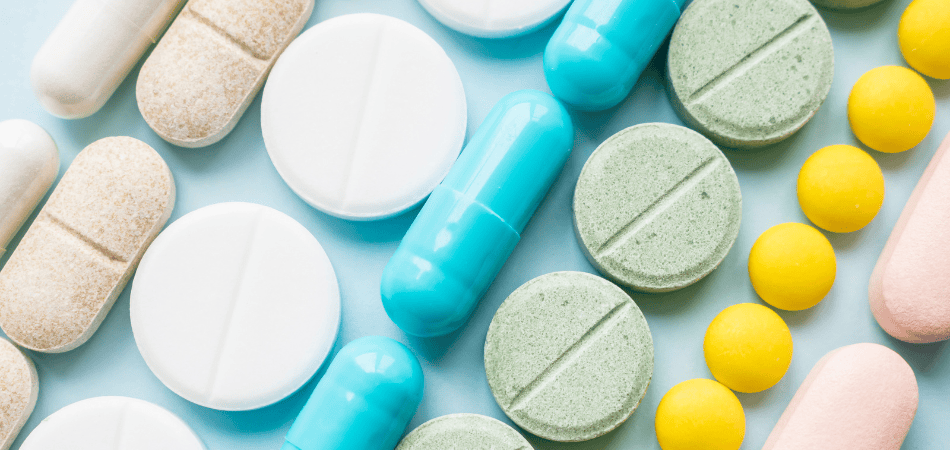
Written by:

Medically Reviewed by:
Last Updated:
February 14th, 2025
Opioid addiction
What are opioids?
Opioids are a class of drugs that include both natural and synthetic substances derived from the opium poppy plant, commonly used in medicine to manage pain. They work by interacting with specific receptors in the brain and body, reducing pain and creating a sense of euphoria. Because of their powerful pain-relieving effects, opioids are often prescribed for moderate to severe pain, such as after surgery, or injury or for chronic conditions like cancer.
However, their effectiveness comes with a risk. Opioids can be highly addictive due to the feelings of relaxation and pleasure they produce, which has contributed to a significant rise in misuse and addiction. To minimise these risks, medical professionals closely monitor opioid prescriptions, often limiting them to short-term use to help prevent long-term complications and dependency.
Opioids in the UK
The UK has long struggled with the growing issue of opioid addiction. In fact, back in 2019, the country had the highest rate of opioid consumption globally, paired with a staggering 388% increase in opioid-related deaths since 1993. While opioid prescriptions have since been cut nearly in half, many people remain caught in the grip of addiction or are dangerously close to developing one.
Although the situation in England hasn’t reached the catastrophic levels seen currently in the US, opioid-related harms and fatalities are still on the rise. Some have labelled the UK’s situation an opioid epidemic, albeit one that hasn’t yet overwhelmed the healthcare system to the point of crisis. But with addiction, overdoses and deaths continuing to escalate, it’s clear that urgent action is needed to address the ongoing risks.
Are all types of opioids addictive?
Opioids are well known for their high risk of addiction, which is why it’s so important to understand the dangers they come with. Even when they’re prescribed for legitimate medical reasons, these drugs can be surprisingly harmful. With so many different brand names, it’s easy to lose track of what you’re really taking. Whether you’re using them as prescribed or not, opioids carry a serious risk of addiction and staying informed can help you avoid unintended consequences.
Codeine addiction
Codeine is a powerful opiate medication that is typically used to relieve pain or suppress coughing. Although this drug can be extremely effective when used as directed, it also carries a high risk of addiction for many people.
Fentanyl addiction
Fentanyl is often prescribed for the management of severe pain, however, it is also commonly diverted for illicit use, often mixed with other drugs like heroin or cocaine without the user’s knowledge.
Methadone addiction
Methadone is primarily used as a treatment option for individuals who are suffering from addiction to other opioids, such as heroin. While methadone can be highly effective in managing opioid addictions, it does have the potential for abuse and dependence as well.
Morphine addiction
Morphine is a powerful analgesic that is used to treat severe pain, particularly in cases involving cancer or other serious medical conditions. However, this is also a highly addictive and dangerous drug that can cause severe harm if not used with care.
Oxycodone addiction
Oxycodone is a commonly prescribed opioid medication used to treat moderate to severe pain. It is also often used recreationally, with individuals quickly developing a tolerance to the drug and becoming dependent on it.
Tramadol addiction
Another prescription pain medication, tramadol is also known to be highly addictive and poses significant risks when used long-term or in large quantities. Some individuals develop a dependence on the drug while trying to manage their chronic pain.
Vicodin addiction
While Vicodin can be an effective tool for managing acute pain, it is also potentially addictive, and chronic use can lead to several negative side effects. Long-term use of Vicodin has been shown to increase the risk of overdose and addiction.
Buprenorphine addiction
Buprenorphine is often used in medical settings to help people safely relinquish heroin dependency. Buprenorphine is a partial opioid so the likelihood of addiction is low. However people can still abuse the drug if they don’t follow medical guidance.
Dihydrocodeine
Dihydrocodeine is an opioid analgesic which is combined with caffeine and used to treat moderate to intense pain. If a person were to abuse dihydrocodeine by taking more than the instructed amount, they risk developing an addiction to the drug.
How can I spot an opioid addiction?
Teaching yourself the signs and symptoms of opioid addiction is an essential step toward recognising a potential issue, whether it’s for yourself or a loved one. Addiction can develop gradually, often without the person realising how far it’s progressed.
By learning what to look for, you equip yourself to spot warning signs early, making it easier to seek help or offer support before the situation worsens.
Physical signs
- Drowsiness or nodding off: Frequent sleepiness, often at inappropriate times, is common.
- Constricted (small) pupils: Opioid use causes a noticeable change in pupil size.
- Slurred speech: Difficulties in speaking clearly can occur even if the person is trying to stay alert.
- Slow breathing rate: Opioids can slow down respiratory function.
- Itchiness: Some individuals may frequently scratch their skin.
- Weight loss or changes in appetite: A noticeable decline in overall health may result from addiction.
- Chronic constipation or nausea: Digestive issues are common with long-term use.
Psychological signs
- Increased anxiety or irritability: Mood swings and irritability, especially when opioids aren’t available, may occur.
- Depression or lack of motivation: Opioid addiction often leaves people feeling emotionally flat or unmotivated.
- Obsessive thoughts about getting or using opioids: The addiction becomes central to the person’s life.
- Memory and concentration problems: Cognitive functions may be impaired, making it hard to focus on everyday tasks.
Behavioural signs
- Doctor shopping: Going to multiple doctors or emergency rooms to obtain more prescriptions.
- Neglecting responsibilities: Work, school or family duties may be ignored due to preoccupation with opioid use.
- Isolation or secrecy: The person may withdraw from social circles or become secretive about their whereabouts.
- Financial difficulties: Spending large amounts of money on opioids may lead to unexplained financial troubles.
- Frequent bathroom breaks: Opioids are sometimes used in private settings, so repeated, unexplained trips to the bathroom might be a sign.
Note: It’s important to know that the signs and symptoms listed here may vary depending on the specific type of opioid being used.
How are opioid addictions treated at Liberty House?
At Liberty House, our opioid rehab programme is designed to offer comprehensive, compassionate care that addresses both the physical and emotional aspects of opioid dependency. When you arrive, we begin with a detailed assessment of your opioid use, physical health and any co-occurring mental health conditions. This helps us tailor a treatment plan that’s just right for you.
The first step is detox, where we’ll support you as your body adjusts to being free from opioids. Withdrawal symptoms like restlessness or insomnia can be tough but our experienced medical team will be by your side to make the process as comfortable and safe as possible.
Once detox is complete, we’ll guide you through therapy that helps uncover the root causes of your opioid use. You’ll have access to individual counselling, Cognitive Behavioural Therapy (CBT) and group sessions to build the mental strength and resilience needed for lasting recovery.
To round out your journey, we also offer holistic therapies like yoga and meditation to help you find balance and peace, supporting you in every step toward a drug-free life.
For more information on our opioid addiction treatment programmes, reach out to Liberty House today. Begin your journey to sobriety with a simple phone call or click.
Frequently Asked Questions
(Click here to see works cited)
- Roberts AO, Richards GC. Is England facing an opioid epidemic? Br J Pain. 2023 Jun;17(3):320-324. doi: 10.1177/20494637231160684. Epub 2023 Feb 27. PMID: 37342398; PMCID: PMC10278447.
- NHS Choices, NHS, www.england.nhs.uk/2023/03/opioid-prescriptions-cut-by-almost-half-a-million-in-four-years-as-nhs-continues-crackdown/. Accessed 7 Oct. 2024.















